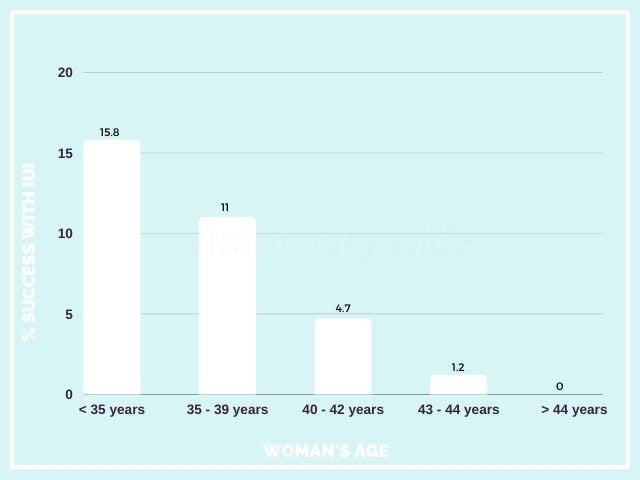Intrauterine insemination (IUI) is much cheaper and less invasive than invitro fertilization (IVF) but it is not for everyone. Should you try IUI before IVF? Or is it just a waste of money and time, which is extremely crucial in fertility treatments?
Before you start the treatment, learn about the differences between the two procedures, understand how they work, and discuss with the doctor on what is recommended in your situation.
While IUI is significantly cheaper than IVF and usually the first line of treatment in cases of unexplained infertility in young couples, it would be a total waste if your tubes are blocked or if you have ovarian insufficiency due to age or pre-mature ovarian failure.

What happens in IUI?
IUI introduces the male sperm into the female’s uterus via an injection. It is scheduled to coincide with the female’s ovulatory cycle which can be induced naturally or chemically with the use of drugs.
What happens in IVF?
IVF is a more complex procedure where, the eggs are removed from the ovaries and fertilized with the sperm in vitro (test tube). The fertilized embryo is then directly implanted on the uterus after 3-5 days.
Unlike the IUI, which uses natural methods of ovulation, this process uses heavy drugs which help stimulate the ovaries before the procedure, so that more eggs can be collected to improve the chances of success in a single cycle.
Should I start with IUI or IVF?
IUI is recommended if you have:
- Open fallopian tubes
Before the procedure, the physician will ensure that you have open fallopian tubes by conducting the HSG test (hysterosalpingogram). Your suitability for IUI is completely dependent on the patency of your tubes. - Healthy ovulation
IUI can be done only if you have a perfectly healthy production of eggs. Only after testing the cycle and hormonal levels, is the process begun.
If you have minor ovulation issues, IUI may still be recommended with the aid of some drugs. - Unfavorable cervical mucus
The sperm needs to enter the uterus without any barriers. Cervical mucus makes natural conception challenging, whilst it has no effect on IUI procedure as the sperm is introduced directly into the uterus and not the cervix. - Mild male-factor infertility
If your infertility problems are attributed to minor male fertility issues such as slightly lowered sperm count or ejaculation problems, IUI may prove highly beneficial as the process involves introduction of a good concentration of healthy sperm into the uterus. - Requirement of donor sperm
In cases of azoospermia, where even surgical sperm extraction is not viable, using a donor’s sperm is recommended. If the female partner has no fertility issues and the requirement of the donor sperm is absolutely necessary, there is no need to consider IVF or ICSI.
For female couples of the same-sex, IUI may be performed with a donor’s sperm.
It has been noted that in an attempt to achieve pregnancy as soon as possible, clinics may be prematurely jumping to IVF, even in cases where the much-milder IUI could easily bring the desired results (1).
When should you skip IUI and go straight to IVF?
Despite being useful in many cases, IUI could be a total waste in some situations. You will be recommended to straight away go for IVF if you:
- Have blocked fallopian tubes
- Have an abnormal ovulation cycle
- Suffer from endometriosis.
- Suffer from some genetic disorders that require PGS/PGD screening for the embryos
- Need eggs from a donor
- Are in your late 30s, as fertility in women typically starts to decline around the age of 35 and the chances to succeed with IUI (and even IVF) are significantly lowered.
Even if all the factors related to your fertility are seemingly favorable, doctors usually recommend only three and not more than 5- 6 cycles of IUI before moving on to IVF.
It is imperative that you get your fertility tests done and find the reason for not being able to conceive before jumping into any of these expensive treatments.
How many rounds of IUI before IVF?
Given that all other factors related to yours and your partner’s fertility are favorable, you can do three cycles of IUI before IVF. This is especially advised to women below the age of 35.
Is it recommended to do IUI before IVF?
Whatever the treatment, the final goal is to have a baby. While success rate is one of the main factors to consider, you will also take into account the complexity of the procedure, its cost-effectiveness, age of the patient, and time.

- Success rates – If the female age is below 35, the success rates of IUI could be between 8 percent to 15 percent, whereas for IVF the success rates are roughly around 50 percent.
- Cost – IVF costs are normally around 20 times the cost of IUI but that does not mean you keep trying with the lower priced option, without any success. Infact, in some situations, it may be more cost-effective to go directly to IVF. Remember, even if it doesn’t cost much, any money you spent on a failed cycle, is only wasted.
- Drug usage – Drug usage in IUI is often optional though a few hormone inducers are usually given to help improve ovulation. IVF relies on heavy drug usage to stimulate the ovaries. These drugs are not only expensive, they can sometimes cause side-effects.
- Health risk –– While there isn’t much risk in either of the procedures, the safety of IVF drugs has often been questioned by the critics. In rare cases, the drugs administered in an IVF cycle may cause ovarian hyperstimulation syndrome (OHSS).
- Multiple births – The risk of multiple births is higher in IUI if it is performed with fertility drugs, as the washed semen can fertilize several eggs. However, since only one or two embryos are transferred in IVF, this risk is minimized.
- Time required – IUI is a rather simple procedure and it will take only 1-2 visits to the clinic. If it works, it may be the quickest possible treatment to make you pregnant. However, patients in their late 30s and 40s, may not have easy success with IUI and will only end up wasting too much precious time before IVF, when their fertility is already on the decline.
In these situations, moving directly to IVF would be the better option, as chances of success with IUI are almost nil.
To consult with an experienced fertility expert about whether you should try IUI before IVF, get in touch using the red contact button on this page.
References
- Ombelet W. (2017). The revival of intrauterine insemination: evidence-based data have changed the picture. Facts, views & vision in ObGyn, 9(3), 131–132. https://www.ncbi.nlm.nih.gov/pmc/articles/PMC5819320/
Reviewd by: Dr. Meenakshi, PhD